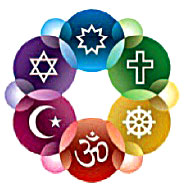 By: Paul P. Jesep*/TRT Faith Columnist—
By: Paul P. Jesep*/TRT Faith Columnist—
Justin Tanis, Managing Director at the Center for Lesbian and Gay Studies in Religion and Ministry, established at the Pacific School of Religion for gender, religion, and sexuality, answered twelve questions submitted by The Rainbow Times after the U.S. Supreme Court’s decision on marriage equality. [The answers to the questions deal with marriage equality and religious liberty from a professional opinion and will all be published in a four-part special** TRT feature story].
Q. What is religious liberty?
A. The UN’s Universal Declaration of Human Rights provides in Article 18, “Everyone has the right to freedom of thought, conscience and religion; this right includes freedom to change his religion or belief, and freedom, either alone or in community with others and in public or private, to manifest his religion or belief in teaching, practice, worship and observance.” The First Amendment guarantees in the United States the right to express faith and believe as we want and that we are free from government preferring one faith over others or faith over non-belief.
Religious liberty means people have the right to faith. This means they should be free to think and believe according to their own consciences, and the right to worship according to that belief. It means someone’s religious liberty cannot be used to curtail or prevent the religious liberty of another. Wide diversity of beliefs in our world enhances our understanding of the Divine. [pullquote]Regarding same gender couples, some businesses and employees are selectively using their faith as an excuse to discriminate against a single group of people, while ignoring other significant aspects of their faith. The Bible is very clear about the responsibility of hospitality (significantly clearer than it is about marriage or homosexuality) regardless of what one believes about the other person.[/pullquote]
Q. Does the Supreme Court’s decision on Marriage Equality threaten religious liberty?
A. No. The Supreme Court decision means individuals and communities who believe same gender couples are equal to opposite sex couples in the eyes of God are now free to treat all equally. Those who do not agree are completely at liberty to continue in their beliefs and, within their communities of faith and private lives, free to continue to discriminate against those who form loving partnerships with people of the same sex.
Nothing about this decision impacts a person’s individual beliefs. It does nothing to impede people’s right to gather for worship, to preach what they believe, or to order their personal lives. It means all people are treated equally under the law when it comes to marriage.
Q. Why shouldn’t a person of deep faith with a business who believes in “traditional” marriage refuse to be hired at a same-gender wedding?
A. Persons are free to believe whatever they want about marriage and use that belief to make decisions when forming their own relationships and when interacting with members of their families and faith communities. If they believe marriage between two people of the same gender is wrong, then they have every right to not enter into that type of relationship and should never be forced or coerced into doing so. But their beliefs do not grant them the right to deny goods and services in the public sphere to those who believe differently.
Regarding same gender couples, some businesses and employees are selectively using their faith as an excuse to discriminate against a single group of people, while ignoring other significant aspects of their faith. The Bible is very clear about the responsibility of hospitality (significantly clearer than it is about marriage or homosexuality) regardless of what one believes about the other person. Consider this list of passages: www.openbible.info/topics/hospitality.
It is ludicrous to empower businesses with a moral litmus test before providing services—these businesses are not refusing to serve those getting re-married, for example, though Jesus is clearly against divorce. We don’t want businesses judging our personal lives; we to move freely in public and have all people access the same goods and services.
* Paul is a corporate chaplain, seminary trained priest, and attorney in greater Albany, NY. Reach him through www.CorporateChaplaincy.biz.
** Pick up a copy of The Rainbow Times October, 2015 issue, or read TRT online to follow this four-part special feature, starting with this issue and ending in the January 2016 edition.






